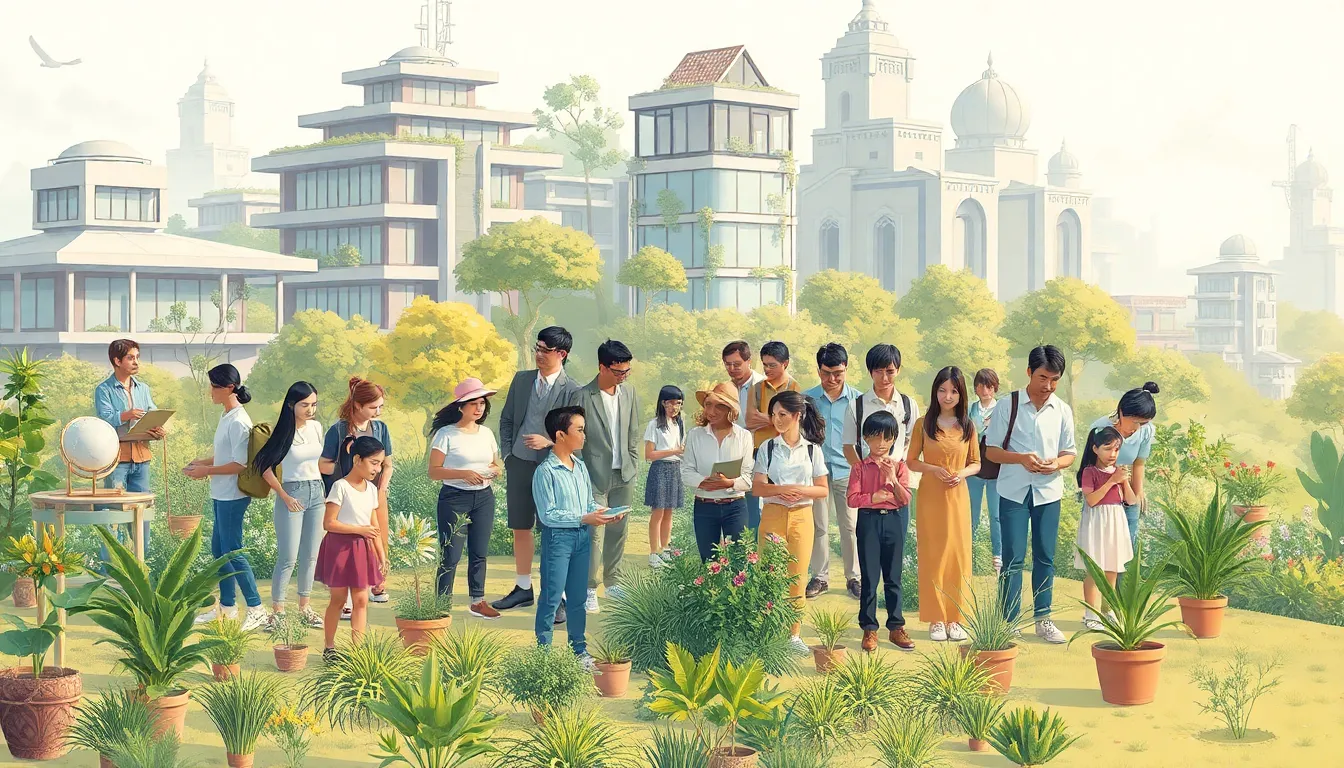Imagine a world where everything’s perfect—no traffic jams, no Monday blues, and an endless supply of pizza. Utopia movies take viewers on a wild ride through these idealistic realms, showcasing visions of society that spark both wonder and curiosity. Whether it’s a futuristic paradise or a whimsical community, these films challenge our perceptions of happiness and perfection.
But before you start packing your bags for a one-way trip to dreamland, it’s essential to explore what makes these utopian fantasies tick. From thought-provoking narratives to stunning visuals, utopia movies offer more than just escapism. They invite audiences to reflect on their own realities while laughing at the absurdities of life. So grab your popcorn and get ready to dive into the enchanting world of utopia on screen—where the grass is always greener and the plot twists are always unexpected.
utopia movies
Utopia movies explore idealized worlds that reflect humanity’s deepest desires for harmony and happiness. These films often challenge viewers to think critically about societal norms and personal aspirations.
Defining Utopian Concepts
Utopian concepts embody visions of perfect societies where harmony prevails, and conflicts are nonexistent. These narratives often feature advancements in technology, social constructs, and environmental balance. Characters inhabit worlds where limitations are minimal, creating an appealing escape from daily struggles. Audiences encounter thought-provoking themes such as equality, justice, and sustainable living. Through these films, filmmakers present opportunities for viewers to visualize impactful changes to their own realities.
Historical Context of Utopia Movies
Historical context reveals that utopia movies gained prominence throughout the 20th century. Early examples often reflected post-war optimism and dreams of societal progress. Influential films like “Metropolis” (1927) and “The Giver” (1993) established foundational narratives exploring utopian themes. The genre evolved to include critiques of perfection, thus bridging the gap between idealism and realism. As societies faced political and ecological challenges, filmmakers adapted stories to mirror contemporary concerns, ensuring utopia movies resonate with audiences today.
Key Themes in Utopia Movies

Utopia movies often explore central themes that reflect society’s aspirations. Two prominent themes include social harmony and technological advancements.
Social Harmony and Community
Social harmony represents a fundamental ideal in utopia movies. These films frequently depict communities where equality and cooperation thrive. Interpersonal relationships exhibit mutual respect and understanding, allowing individuals to live without conflict. For instance, “The Giver” illustrates a society where emotional connections foster unity. By showcasing communal living, these narratives challenge viewers to consider the importance of inclusion and cooperation in their own lives. Community-centric themes resonate deeply as they encourage reflection on contemporary social issues.
Technological Advancements
Technological advancements play a crucial role in shaping utopian landscapes. Utopia movies often present futuristic innovations that enhance daily living and promote well-being. For example, “Her” explores the relationship between humans and artificial intelligence, highlighting potential benefits and ethical dilemmas. Innovations depicted in these films frequently solve societal problems, such as poverty and environmental decay. As technology integrates seamlessly into everyday experiences, these narratives invite audiences to ponder the balance between progress and humanity, addressing the implications of technological dependency.
Notable Utopia Movies to Watch
Utopia movies captivate audiences with their visions of ideal societies, making them a must-watch. These films range from classics that laid the groundwork for the genre to contemporary narratives that reflect modern issues.
Classic Utopia Movies
“Metropolis” (1927) stands as a pioneering film, depicting a futuristic society divided by class struggle. “The Time Machine” (1960) explores the consequences of societal evolution, capturing a world where utopia seems achievable yet fraught with unforeseen challenges. “Fahrenheit 451” (1966) presents a future devoid of literature and critical thought, emphasizing the importance of knowledge in any ideal society. “Logan’s Run” (1976) offers a glimpse into a seemingly perfect world that hides dark secrets beneath its surface.
Modern Utopia Movies
“Her” (2013) brings attention to personal connections in a world dominated by technology, exploring love beyond traditional boundaries. “The Giver” (2014) challenges the idea of a perfect society by urging viewers to reflect on emotional depth and human experience. “Ready Player One” (2018) showcases a digital utopia while highlighting the struggles in the real world, prompting discussions about escapism. “The Platform” (2019) critiques social structures and emphasizes equality, pushing audiences to consider the implications of resource distribution in any society.
Critical Reception and Impact
Utopia movies often provoke strong reactions from audiences, reflecting viewers’ aspirations for societal improvement. Audiences frequently express admiration for the idealistic worlds portrayed, finding inspiration in the potential for harmony and equality. Some viewers appreciate the escapism these films provide, while others question the feasibility of such perfection in reality. Critics often highlight the films’ ability to challenge societal norms and spark important conversations about prevailing issues, from technological advancements to environmental sustainability. Ultimately, the reception varies widely, with some appreciating the charm and humor while others remain skeptical of the depicted utopias.
Utopia films have influenced numerous genres, creating a ripple effect across cinematic storytelling. Science fiction, fantasy, and even drama genres draw elements from utopian narratives, enriching their thematic depth. For example, many dystopian films use elements of utopia to highlight stark contrasts with flawed societies, eliciting critical viewing experiences. Additionally, romantic comedies explore idealistic relationships influenced by the values portrayed in utopian films. This blending of genres showcases the versatility of utopian themes and their relevance across diverse storytelling, reinforcing their impact on contemporary cinema.
Conclusion
Utopia movies offer a unique lens through which viewers can explore their aspirations for a better world. These films not only entertain but also challenge audiences to reflect on their values and societal structures. By presenting idealized societies, they spark conversations about equality, technology, and the human experience.
As they continue to evolve, utopia movies remain relevant in addressing contemporary issues. Their ability to blend escapism with critical reflection makes them a powerful tool for understanding the complexities of modern life. Embracing the charm and humor of these narratives can inspire a deeper appreciation for the pursuit of harmony and happiness in our own realities.

